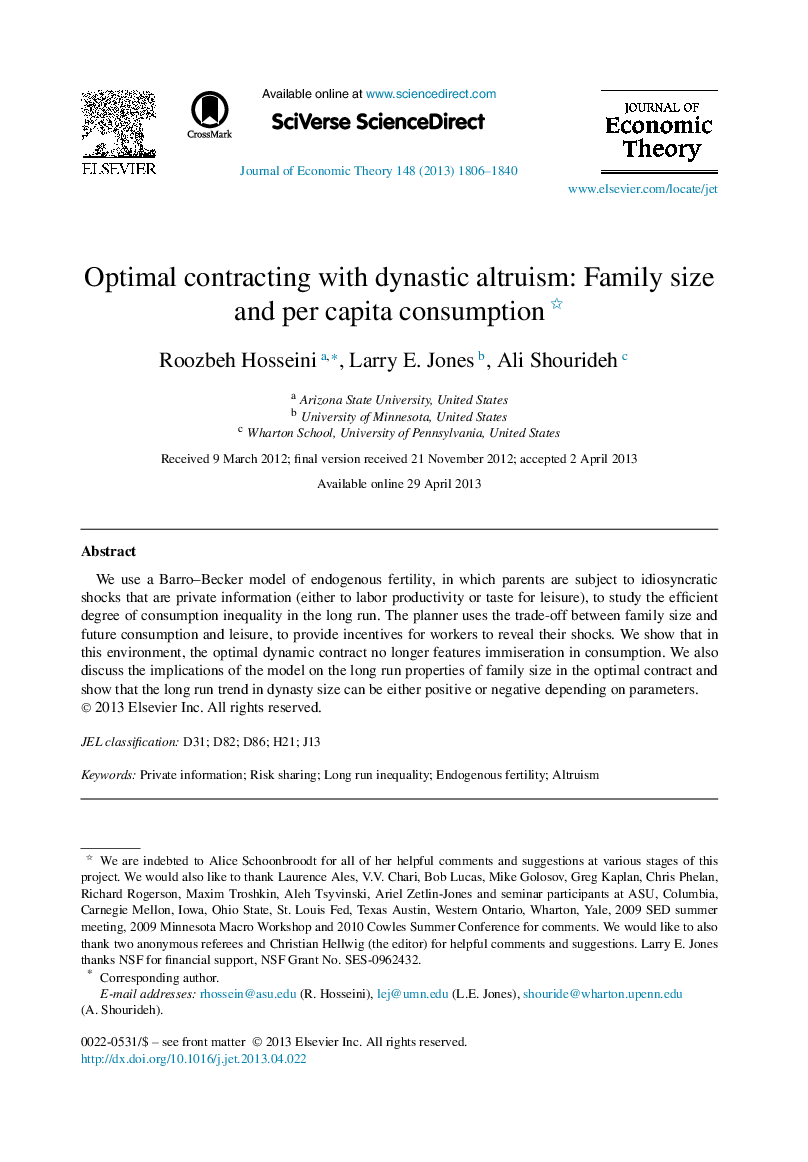| Article ID | Journal | Published Year | Pages | File Type |
|---|---|---|---|---|
| 10474292 | Journal of Economic Theory | 2013 | 35 Pages |
Abstract
We use a Barro-Becker model of endogenous fertility, in which parents are subject to idiosyncratic shocks that are private information (either to labor productivity or taste for leisure), to study the efficient degree of consumption inequality in the long run. The planner uses the trade-off between family size and future consumption and leisure, to provide incentives for workers to reveal their shocks. We show that in this environment, the optimal dynamic contract no longer features immiseration in consumption. We also discuss the implications of the model on the long run properties of family size in the optimal contract and show that the long run trend in dynasty size can be either positive or negative depending on parameters.
Related Topics
Social Sciences and Humanities
Economics, Econometrics and Finance
Economics and Econometrics
Authors
Roozbeh Hosseini, Larry E. Jones, Ali Shourideh,
